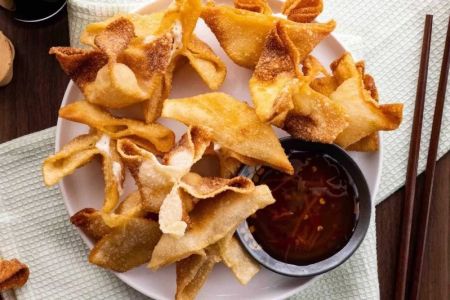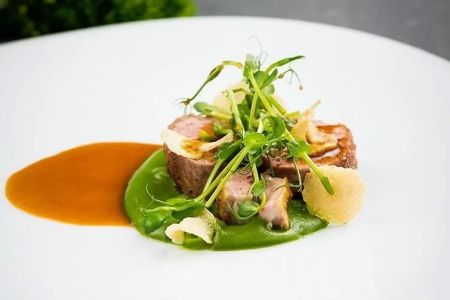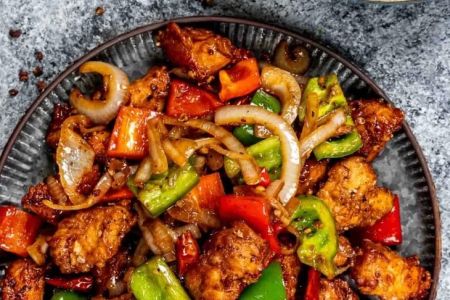- hot-and-sour-soup-recipe-crafting-the-perfect-balance-of-tangy-spicy-and-savory-flavors
- 1-understanding-the-flavor-profile---what-makes-hot-and-sour-soup-so-satisfying
- 2-essential-ingredients-and-why-they-matter
- 3-step-by-step-how-to-make-authentic-hot-and-sour-soup-at-home
- 4-balancing-flavors-like-a-pro---adjusting-spice-sourness-and-depth
- 5-real-kitchen-stories---how-a-family-turned-this-soup-into-their-signature-comfort-dish
- 6-extra-tips-for-variations-vegetarian-options-and-storage
Hot and Sour Soup Recipe: Crafting the Perfect Balance of Tangy, Spicy, and Savory Flavors
Hot and sour soup is a Chinese culinary classic loved for its bold blend of chili heat, vinegar tang, and umami richness. It’s the kind of dish that comforts you on a cold day, clears your sinuses, and makes your taste buds dance. While it’s a staple in Chinese takeout menus across the U.S., crafting the perfect homemade version allows for richer flavor, fresher texture, and a personal twist. For premium Chinese cooking ingredients and cookware, check what Chinese Food has to offer—whether you're a beginner or home-cooking pro.
1. Understanding the Flavor Profile – What Makes Hot and Sour Soup So Satisfying
At its core, hot and sour soup is about balance. The “hot” usually comes from white pepper or chili oil, delivering a fast, clean heat. The “sour” is typically black vinegar or rice vinegar, offering a dark acidity that lingers. But what truly defines this dish is how it fuses spice, sourness, and deep savory layers into one silky, steaming bowl.
1.1 Umami Backbone
Dried shiitake mushrooms, soy sauce, and bamboo shoots create an earthy, complex base. This is the layer that carries the bold vinegar and pepper flavors without being overwhelmed by them.
1.2 The Comfort Factor
The egg ribbons, tofu, and thickened broth add a soothing texture—like a warm hug in a bowl. It's no surprise that many Asian-American families call this their “sick day soup.”
2. Essential Ingredients and Why They Matter
Every ingredient plays a role in creating the characteristic punch of hot and sour soup. Here's what you need and why it counts.
2.1 Dried Shiitake Mushrooms
These provide deep, smoky umami and chewiness. Soaking them before cooking releases both texture and rich flavor into the broth.
2.2 Tofu and Egg
Silken tofu adds protein and soft texture. Beaten egg, streamed into the hot soup, forms delicate ribbons that absorb the flavors while providing visual contrast.
2.3 Bamboo Shoots and Wood Ear Fungus
These crunchy elements add bite. The wood ear fungus, in particular, provides a texture found in authentic versions but often omitted in simplified recipes.
2.4 White Pepper and Chinese Vinegar
White pepper delivers quick, nasal heat without lingering too long. Chinese black vinegar or Chinkiang vinegar gives the soup its complex tang—sweeter and richer than Western vinegar.
3. Step-by-Step: How to Make Authentic Hot and Sour Soup at Home
Here’s a detailed method to bring restaurant-quality soup into your kitchen:
3.1 Preparation
Soak 6–8 dried shiitake mushrooms and a handful of wood ear mushrooms in warm water for 20–30 minutes. Slice mushrooms thinly. Julienne bamboo shoots and set aside.
3.2 Cooking the Base
In a large pot, heat 6 cups of chicken or vegetable broth. Add mushrooms, bamboo shoots, and tofu. Season with 2 tablespoons soy sauce and 1 tablespoon black vinegar. Simmer for 10 minutes.
3.3 Thicken and Finish
Add a cornstarch slurry (2 tablespoons cornstarch mixed with 3 tablespoons cold water) while stirring. Once thickened, slowly pour in 2 beaten eggs while stirring in a circular motion. Add more vinegar, chili oil, or white pepper to taste.
4. Balancing Flavors Like a Pro – Adjusting Spice, Sourness, and Depth
Even with the right ingredients, achieving the perfect flavor balance takes practice. The beauty of this dish is its flexibility.
4.1 Tuning the Heat
If you enjoy a bold heat, a few drops of chili oil or a sprinkle of fresh red pepper flakes can intensify the kick. But avoid overpowering the broth. Start light and adjust gradually.
4.2 Tweaking the Sourness
The vinegar’s acidity can fade during cooking, so it's okay to add a splash just before serving. A squeeze of lime juice can also brighten the flavor without changing the core profile too much.
4.3 Adding Depth
For deeper flavor, a dash of dark soy sauce or a few slices of ginger during the simmering phase can round out the broth and make it richer.
5. Real Kitchen Stories – How a Family Turned This Soup into Their Signature Comfort Dish
In Queens, New York, the Liu family runs a small takeout spot known for its hot and sour soup. But what most don’t know is that it started from a family recipe passed down by Grandma Liu, who learned to make it during her childhood in Sichuan. She used local vinegars and homegrown chilies, and to this day, the restaurant adds her signature spoonful of pickled mustard root for extra tang.
5.1 The Soup That Brings People Together
“We’ve had customers cry over this soup,” says Jason Liu, her grandson. “It’s the one thing that tastes like home when nothing else does.”
5.2 Lessons from Grandma Liu
She always emphasized three things: taste as you go, never skip the mushrooms, and balance vinegar with a hint of sugar. This level of personalization makes all the difference—and reminds us that the perfect hot and sour soup is more about intuition than exact science.
6. Extra Tips for Variations, Vegetarian Options, and Storage
Once you've mastered the classic version, try experimenting:
6.1 Vegetarian and Vegan Adaptations
Use mushroom or kombu broth instead of chicken. Replace egg with soft tofu cubes or omit entirely. For umami, add a splash of mushroom soy sauce or a few drops of liquid aminos.
6.2 Protein Upgrades
Shredded chicken, shrimp, or thin slices of pork can make the soup more filling. Just be sure to cook the proteins separately and add them before thickening the soup.
6.3 How to Store and Reheat
Hot and sour soup keeps well in the fridge for 2–3 days. Store without the egg and add it fresh when reheating for best texture. It also freezes well, though the tofu may slightly change in texture.








